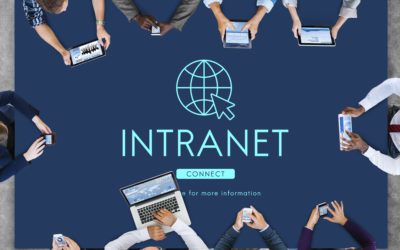“Take advantage of this opportunity to think outside the box.”
Anthony & Adel discuss some of the ways working entirely remotely has changed the way they think about communication, training and managing time. Sometimes it takes a crisis to break us outside of our boxes and start thinking more creatively about problems we face everyday.
How are we thinking differently?
Adel: “So, I was going to ask you to talk about one thing that you’ve learned this week. Maybe it doesn’t have to do even with we’re working remotely, just one thing you learned this week. Because, obviously, when things are different, we tend to have opportunities to think differently, more creatively, outside the box just because we’re forced to.”
Anthony: “Yeah. So, I think to answer your question, I don’t know if you would call it scheduling. Some people call it blocking time. So, I guess that’s what I’ve… I’ve thought about it, I’ve looked into it. I’ve tried to do it in the professional setting, like at the office in a multiple different instances and never have been able to execute on them. One thing I’ve learned over the last two weeks is the actual essence of blocking time.
The reason I would say that is I have to work with Randi, so when do I have calls that I have to be on? When does she have calls that she needs to be on? And also, be cognizant of, even if she doesn’t have calls, I do have to give her an hour or two of a break of not having to deal with the children. So, what I’ve realized is, or what I’ve actually executed on, is blocking time.”
Using Video for Training & Communication
Adel: “The other thing is recording videos and explaining stuff. So, I realized that I wanted to teach the team how to do some of the things that we need to do for websites before we launch, and I was going to sit down with them in person and go through it and have them ask some questions and all that kind of stuff. And then, this happened, and then I realized, “I still want you to do it. I don’t want to do it. And I need to figure out how to show you.”“
Adel: “So, I was like, “Actually, I’m just going to do a Zoom and share my screen and talk through everything that I would do, just like if I were sitting with you at the computer.” And I tried it for a couple of things with Tyler, and it’s seems to work well. I have to get better at it. It’s actually way harder than what you think because you realize that I don’t have all the screens open or I don’t know how to do this right off the top of my head right now, and you’re going to sit here and wait for me to figure it out the next five minutes. You have to stop and start over.”
But we have checklists, every time we go through those checklists we realize there’s something we missed. And if it’s a video and I’m literally doing it for you right here, even if it’s not something I remember to write down or say, you can see it on the screen. And you can look and see all of the settings and say, “Okay, I need to check that box, that box, that box, that box.” So, I mean, if you think about it with Integris, even the engineer’s checklist that they do all the time for stuff, if it were a video, there would be far less of that like, “Did I write it down? I don’t remember.” That kind of step.
Anthony: The other thing I like about that, too, Adel, it’s that when learning via the video, even if, say, it was the ideal scenario and you were in person and you were walking them through it, you still… I’ve learned that way, and it’s still like you’re not comfortable until like the fifth or sixth time you’ve done it by yourself because I learned it from you and now you’re not sitting here. If you have the video, now you’re sitting there and I can pause you, and I can go like, “Okay, this, this, this, and this.” And then like, “Oh, stuck here. Let me either rewind or hit play and let’s keep going. Let me watch the next five minutes, pause it, and go figure it out.” So, I actually even think that’s more ideal than even just sitting in person [inaudible 00:13:15] for a whole session, because they’re going to end up coming back to you the next six times they try and do it, “Because I forgot this part of it.” Right?
Communicating While Working Remotely
Anthony: “Texting and the emails and the chats going off crazy and just not being used to that volume, I always said like to Kevin and Rob, like, “I’m not like a mass communicator. There’s not a ton of activity day-to-day in the sense of like…” I don’t know. Like an engineer or even yourself, you literally have projects and you can go in from ticket to task to this and that. To me, it’s more like my whole gig has been more strategic, always constantly like scheming. Not scheming but strategically like, how is this going to work with this potential client?
And for me, it’s like the way that one email is worded is so much more important than the 20 other that I sent that day. It was like that one strategic relationship, that email that needed to sound right, it needed to get the right point across, and then it needed to structure a way to get to the next step to move this forward. Like pause it, and now it’s just like this communication, communication, communication, fast, fast, fast. It’s just not the way I’ve operated in the last 10 years, let’s say.”
Adel: “And to be fair, your way, that sense of strategic-ness, it’s probably part of the reason you’re so effective because the rest of us are… Like you have no idea how many times I’ve sent an email to a client, and I sit here and I think about it and I read it over and everything like that, but because I feel the sense of urgency to send it that I then have to follow up again, because in 10 to 15 minutes or half an hour something has changed. Or I realized that I made an assumption I shouldn’t have made. And so, the over-communication almost undermines our ability to actually communicate well because we’re just constantly… all of our thoughts coming out.“



